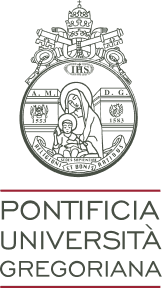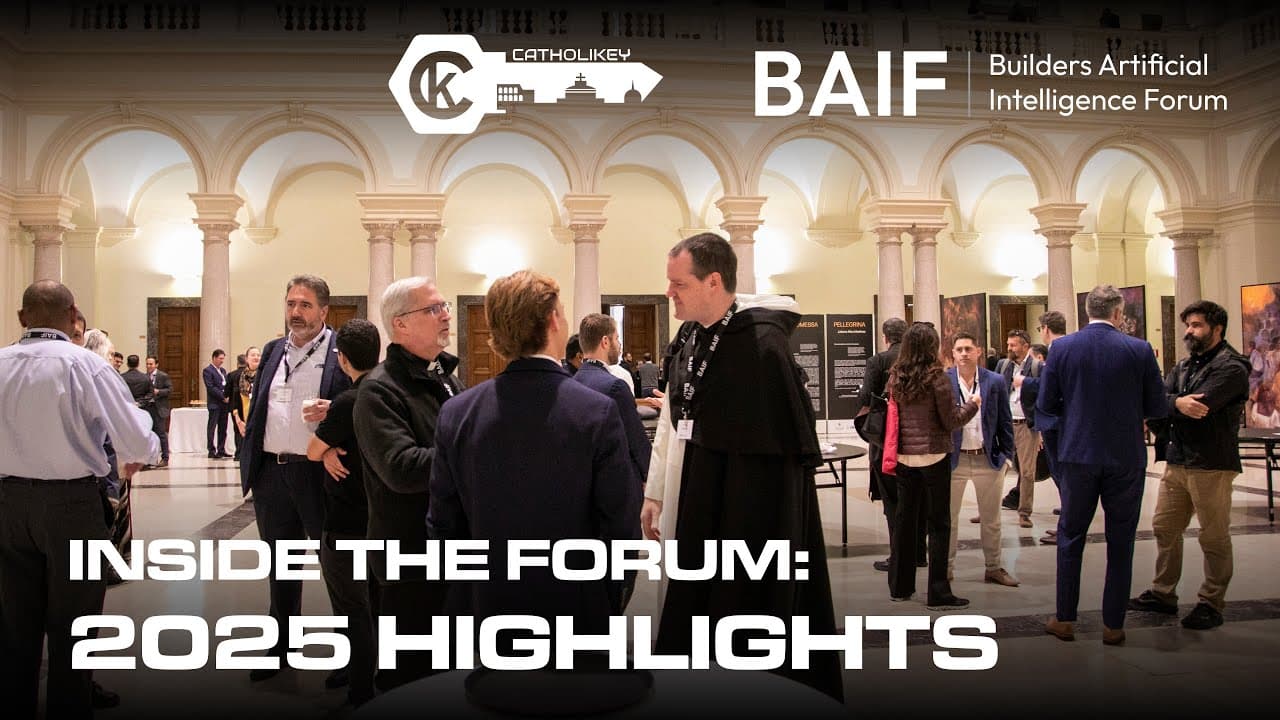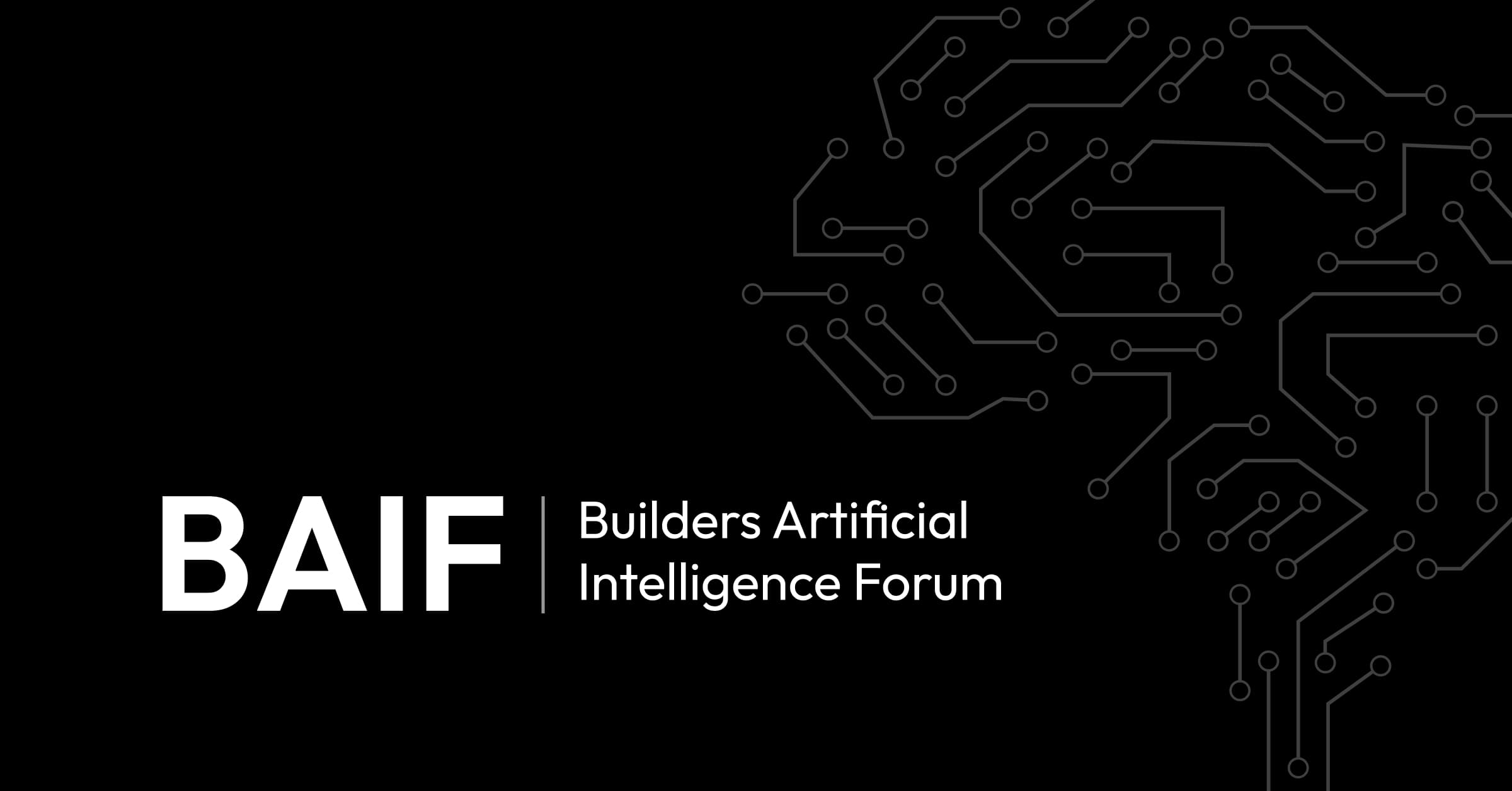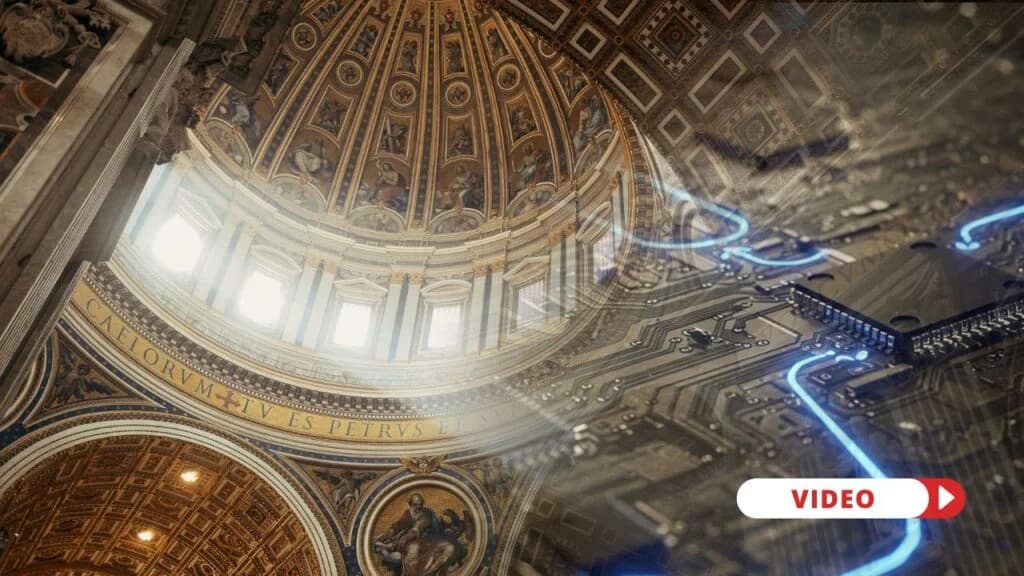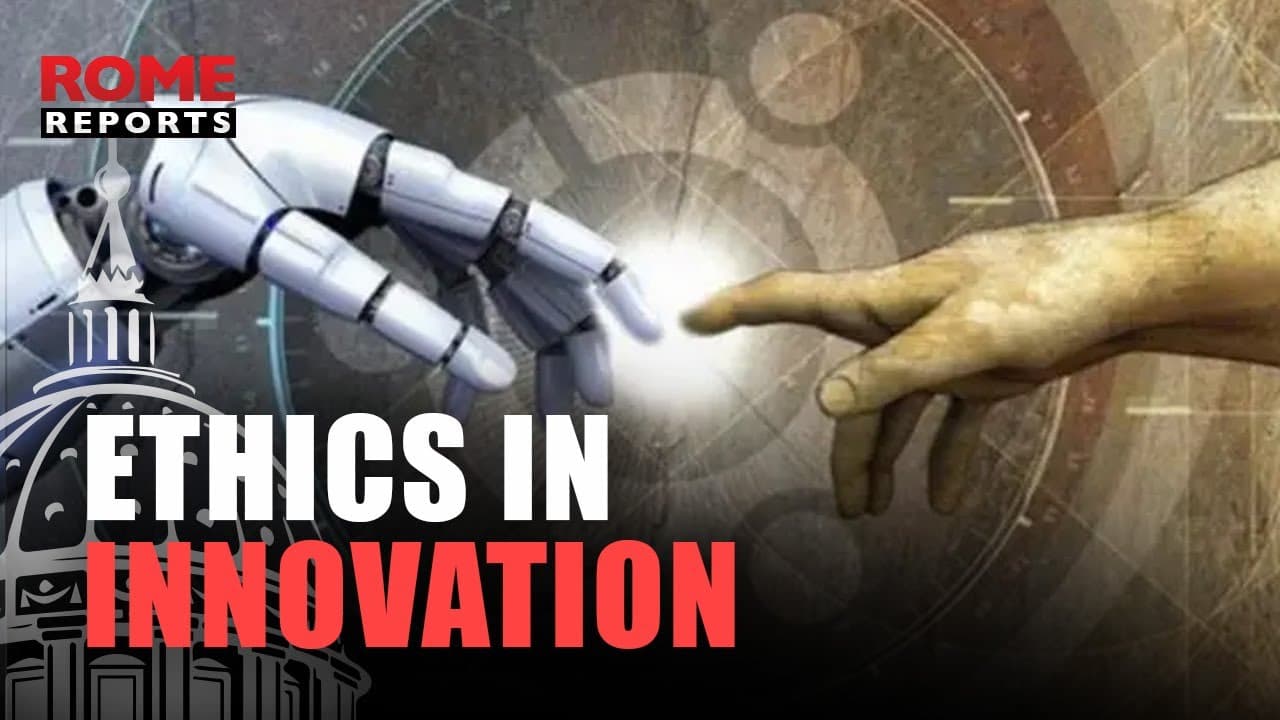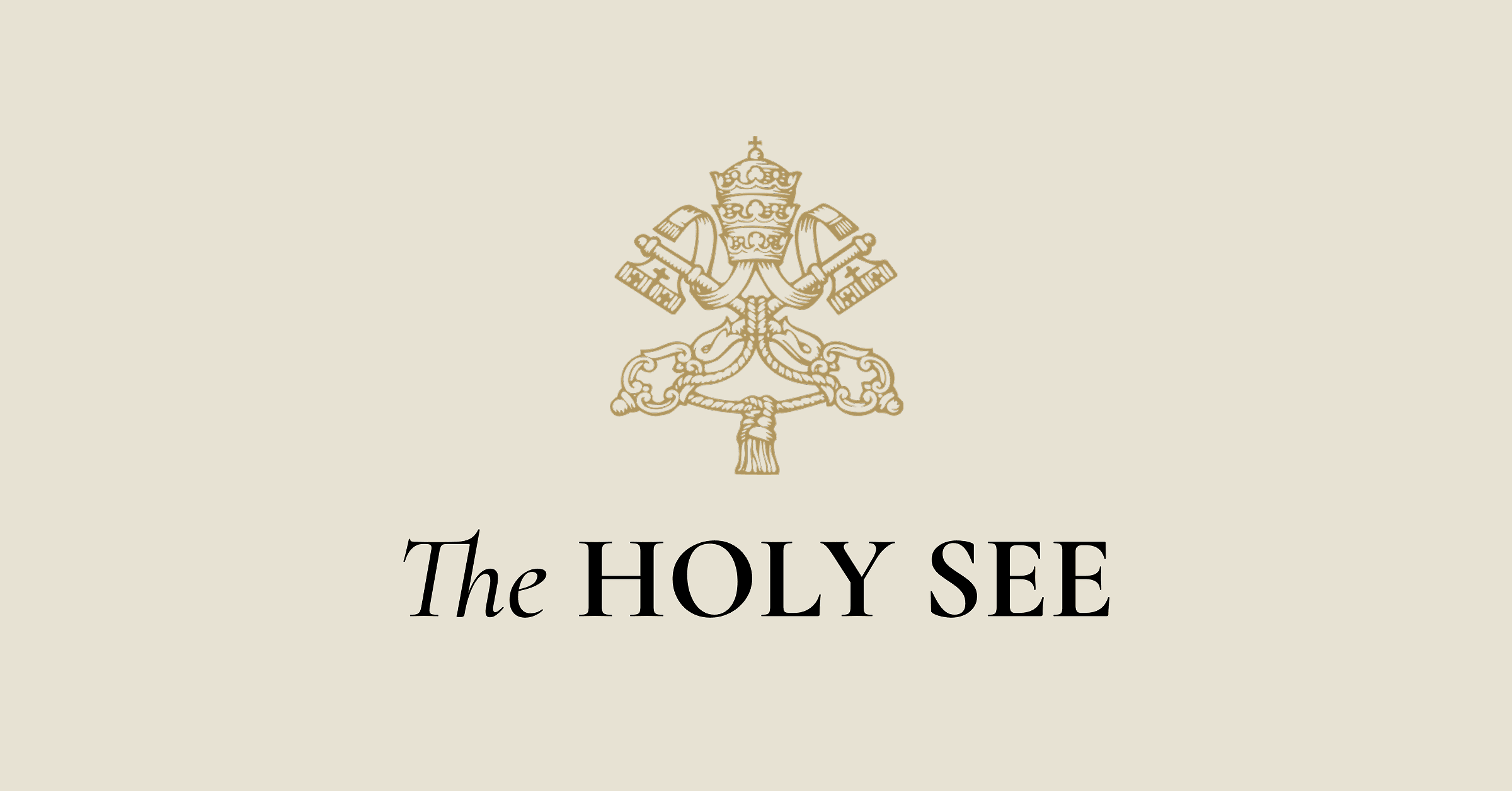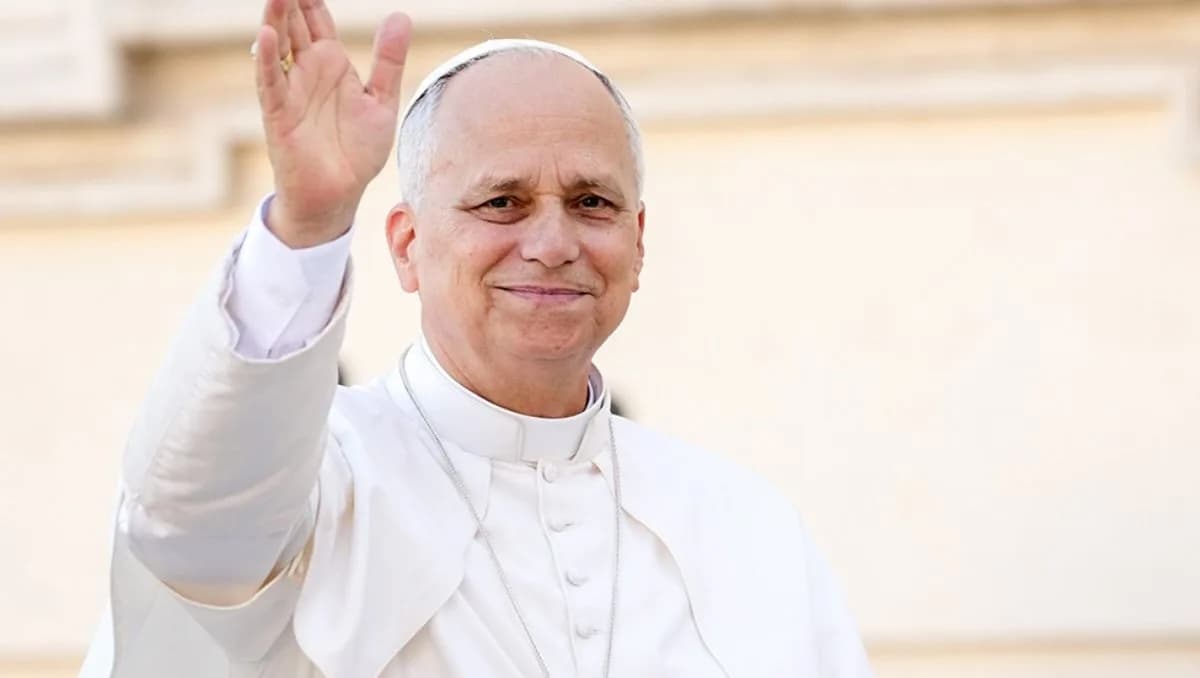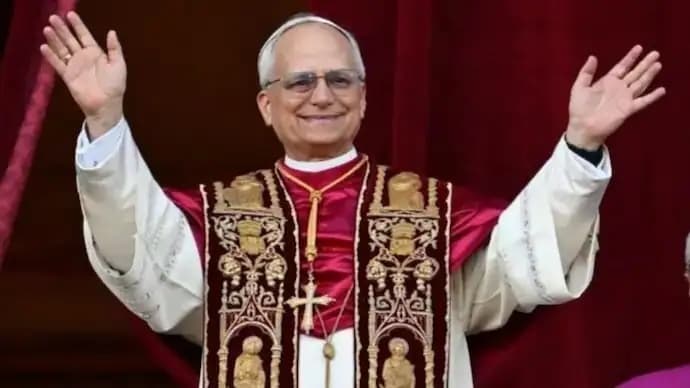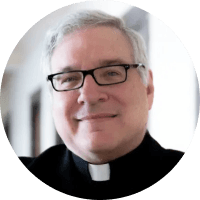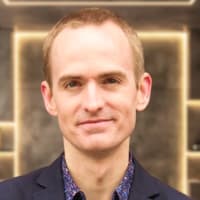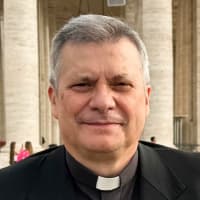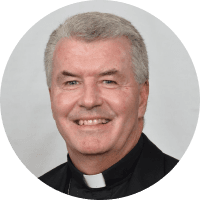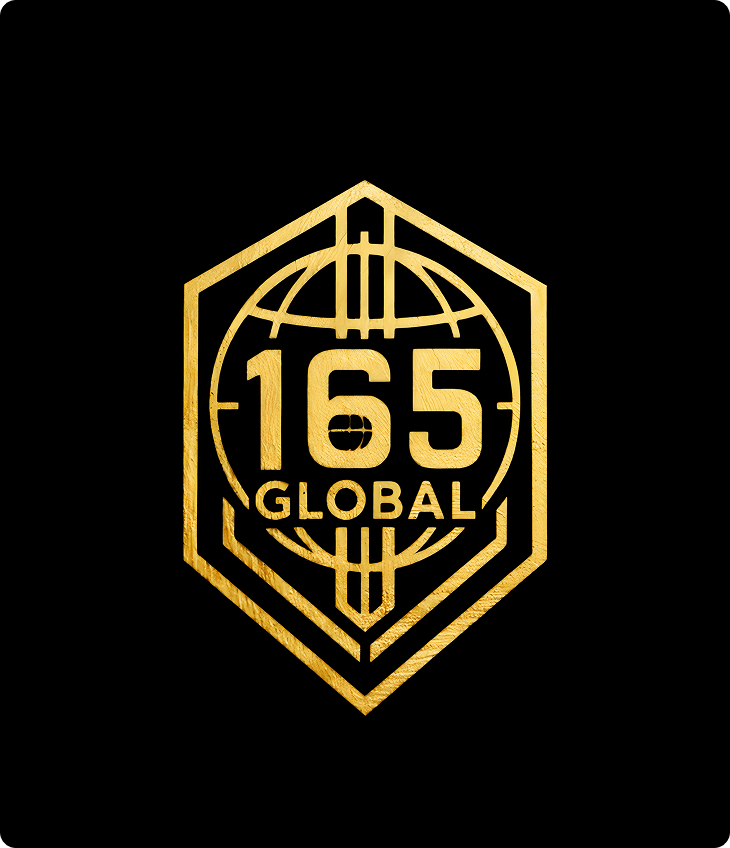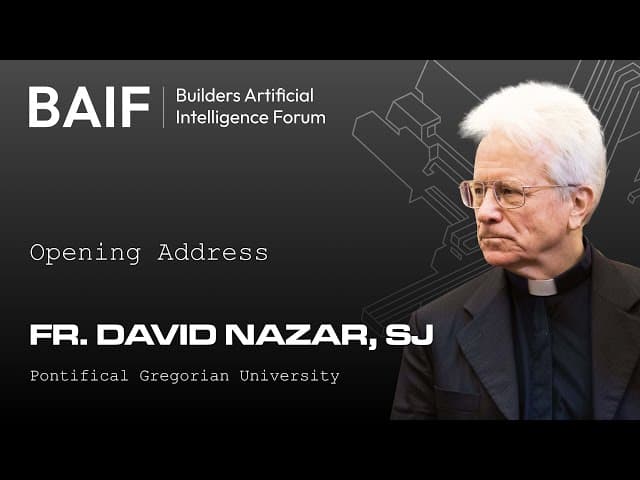

November 6-7, 2025
The Builders AI Forum, hosted by the Pontifical Gregorian University at the Collegium Maximum, Rome, aims to foster a new interdisciplinary community of practice dedicated to supporting the development of AI products that serve the Church's mission.
This gathering brought together companies leading in Catholic AI, venture capital and angel investors, as well as prominent AI thought leaders and researchers.
Videos
 November 14, 2025
November 14, 2025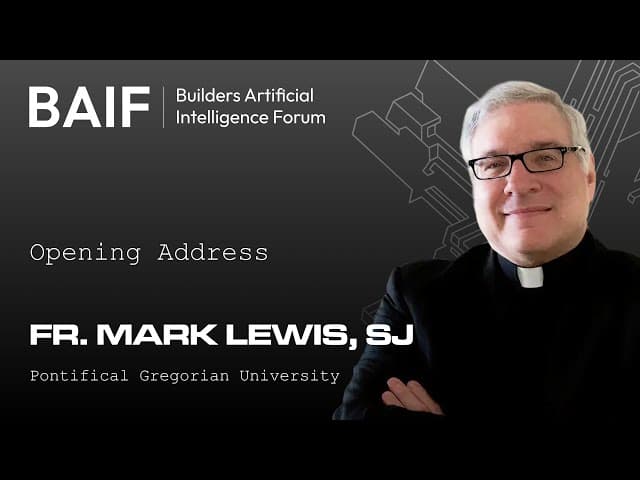
Fr. Mark Lewis’ opening address: Builders AI Forum 2025
November 17, 2025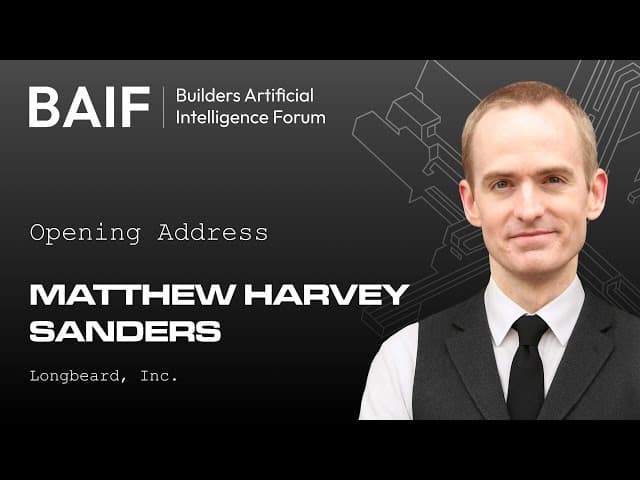
Matthew Harvey Sanders’ opening address: Builders AI Forum 2025
November 17, 2025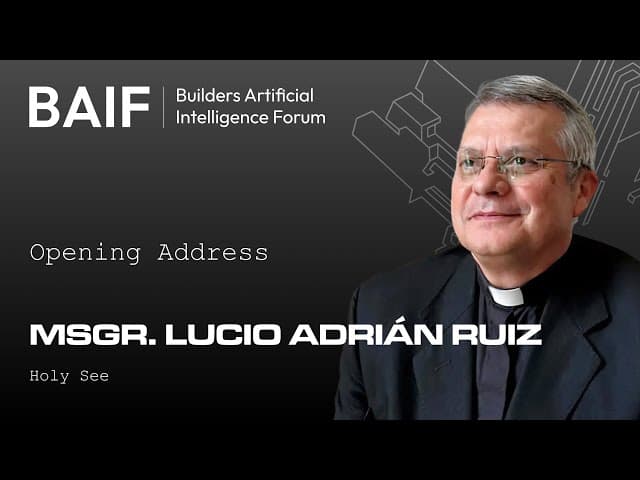
Msgr. Lucio Adrián Ruiz’s opening address: Builders AI Forum 2025
November 17, 2025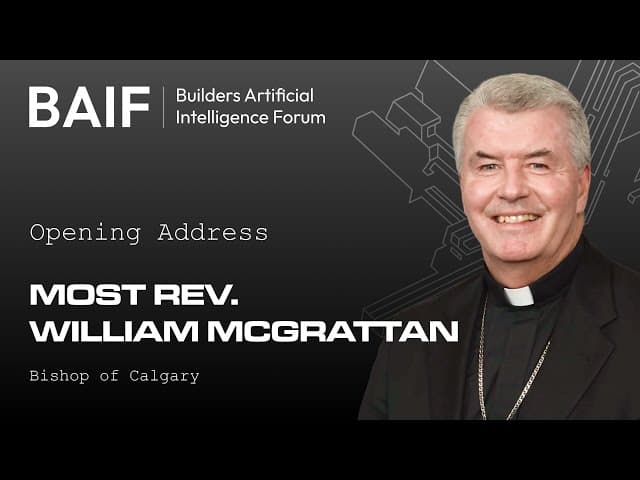
Bishop William McGrattan’s opening address: Builders AI Forum 2025
November 17, 2025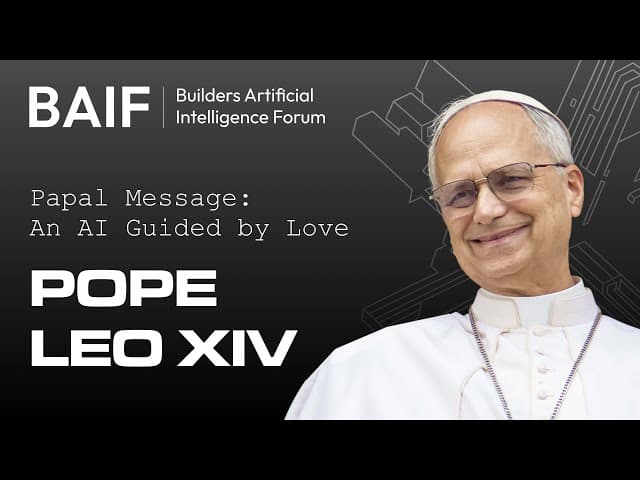
Pope Leo XIV's Message: An AI Guided by Love: Builders AI Forum 2025
November 17, 2025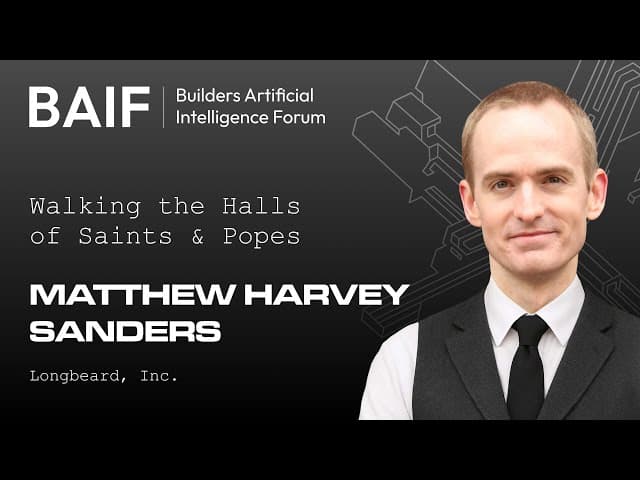
Walking the Halls of Saints & Popes: Builders AI Forum 2025
November 17, 2025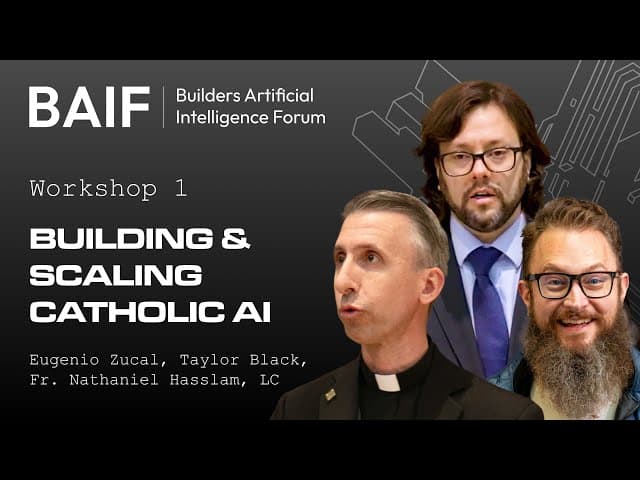
Building and Scaling Catholic AI: Builders AI Forum 2025
November 17, 2025
Photos
Media Hits
Opening Address
Building and Scaling Catholic AI: A Collaborative Roadmap
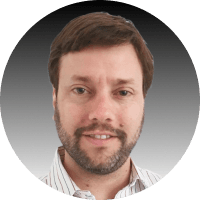
Eugenio Zucal
Founder & Chief Executive OfficerAI WorkifyThis workshop invites developers, strategists, and investors to translate the vision for Catholic AI into tangible and scalable solutions by forging a practical roadmap through collective intelligence.
This workshop will feature:
A Foundational Overview: A candid assessment of the current state of Catholic AI – its technological capabilities, adoption trends, successes, and bottlenecks. We establish a shared baseline understanding.
Strategic Exploration: A deep dive into the critical path required for meaningful growth. We'll discuss strategies for:
- Enhancing AI capabilities tailored to Church needs.
- Designing for scalability and integration.
- Navigating ethical considerations unique to the Catholic context.
- Fostering trust and effective adoption within diverse Church communities.
Co-Creating Next Steps: A collaborative effort to define concrete, actionable recommendations. What initiatives should this emerging community prioritize? How can we best leverage the combined expertise of technologists, investors, theologians, and Church leaders gathered at the Forum?
Ideal for developers, strategists, investors, and Church leaders actively involved or interested in the practical deployment of AI, this workshop will provide valuable insights and foster connections to drive the future of Catholic AI. Leave with a clearer perspective on the path forward and concrete ideas for your role in building it.
Towards a Catholic Turing Test: Defining and Detecting Consciousness

John Saladino
Ontological EngineerEnterra Solutions, LLC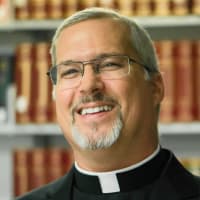
Fr. Philip Larrey
Professor of PhilosophyBoston CollegeThis pioneering workshop convenes diverse experts ranging from theologians to AI researchers to developers to begin collectively conceptualizing a "Turing Test" that is informed by Catholic anthropology and theology and serves as a practically useful tool.
This workshop will feature:
Exploring the Necessity: We will begin by examining why a specifically Catholic framework for assessing potential AI consciousness might be needed. What limitations do current approaches have when viewed through the lens of Catholic teaching on personhood, dignity, and the soul? What are the ethical and pastoral imperatives driving this inquiry?
Defining the Foundation: The central task involves a deep dive into Catholic philosophical and theological understandings of consciousness. What are the key markers of consciousness and personhood according to this tradition (e.g., rationality, self-awareness, free will, relationality, spiritual capacity)? How can these rich, nuanced concepts begin to inform potential criteria for evaluation, acknowledging the inherent mysteries involved?
Outlining a Critical Path: Moving from theory towards practice, we will collaboratively sketch a potential roadmap for developing a "Catholic Turing Test." What might such an evaluation entail? What significant theoretical, ethical, and methodological hurdles must be anticipated and addressed? What interdisciplinary research and dialogue are essential? We will aim to define concrete next steps for this vital conversation.
Designed for theologians, philosophers, ethicists, AI researchers, developers, and thinkers engaged with the deep intersection of AI, consciousness, and Catholic anthropology, this highly interactive workshop requires a commitment to rigorous interdisciplinary dialogue. Participants will leave with a richer understanding of the challenges and possibilities, contribute to the initial framing of this complex issue, and identify pathways for future collaborative research and development.
Charting the Future: Catholic Education as a Leader in AI Integration
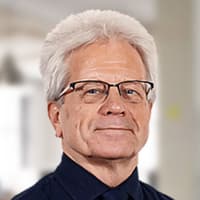
Fr. David Nazar, SJ
Administrative DirectorPontifical Gregorian University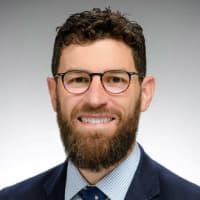
Brett Robinson
Associate Professor of the PracticeUniversity of Notre DameThis collaborative workshop brings together educators, technologists, and leaders to forge a strategic path for Catholic education to become a beacon in the age of AI.
This workshop will feature:
Understanding AI's Educational Potential: We will commence by assessing the current landscape and near-term trajectory of AI systems relevant to education. What practical capabilities exist now (e.g., personalized learning pathways, intelligent tutoring systems, advanced assessment tools, administrative automation), and what advancements are imminent? How can these tools effectively augment teaching and learning within Catholic contexts?
Aligning AI with Educational Purpose: Central to responsible leadership is clarity of purpose. We will engage in a critical dialogue exploring the fundamental aims of Catholic education – encompassing intellectual, spiritual, moral, and social development. Based on this foundation, how can AI genuinely serve these aims? Equally important, what are the inherent limitations of AI, and which applications might contradict or undermine the core mission? We will work towards defining principles for appropriate and inappropriate use.
Defining the Critical Path to Leadership: Moving from principles to action, we will collaboratively outline the strategic steps necessary for Catholic education to take a leadership role in AI adoption. What policies, infrastructure investments, teacher training programs, and ethical guidelines are essential? How can we foster robust collaboration between schools, dioceses, universities, and technology developers? What concrete initiatives and pilot programs can pave the way, ensuring equity and access across the diverse landscape of Catholic education?
Designed for Catholic school administrators, teachers, diocesan leaders, EdTech innovators, policymakers, theologians, and researchers passionate about the future of education, this interactive workshop will foster crucial dialogue and strategic planning. Participants will leave with a clearer understanding of AI's role, contribute to a framework for principled adoption, and identify actionable steps to empower Catholic education to lead effectively and ethically in the integration of artificial intelligence.
Pioneering Principled AI: Leadership for Catholic Healthcare
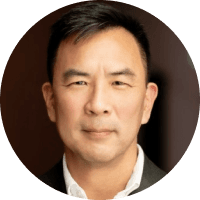
Louis Kim
Former Vice PresidentAI, Personal Systems, HP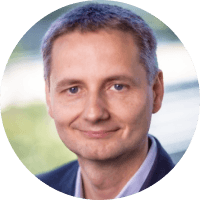
Michael Pencina
Chief Data ScientistDuke University Health SystemThis workshop convenes healthcare leaders, clinicians, ethicists, technologists, and policymakers to collaboratively forge a path for Catholic healthcare to lead in the principled adoption and development of AI.
This workshop will feature:
Assessing AI Capabilities in Healthcare (Current & Near-Future): We will begin by examining the current state (as of late 2025) and immediate future potential of AI systems within the healthcare domain. What are the validated applications impacting clinical practice, patient outcomes, and administrative functions today? What advancements in areas like diagnostic support, predictive modeling, drug discovery, and personalized medicine are on the horizon, and how can they enhance the mission of Catholic healthcare?
Integrating AI with Catholic Healthcare's Core Purpose: The cornerstone of this workshop involves aligning AI's power with the fundamental 'why' of Catholic healthcare. We will delve into its core mission and ethical principles (human dignity, sanctity of life, solidarity, common good, preferential option for the poor). How can AI be ethically deployed to serve these principles—enhancing care quality, improving access, and upholding patient dignity? Conversely, what are the potential risks and ethical red lines (e.g., algorithmic bias, depersonalization, data privacy, equitable resource allocation) that must be proactively addressed to ensure AI supports, rather than undermines, compassionate, person-centered care?
Defining the Critical Path to Ethical Leadership: Building on this foundation, we will collaboratively outline a strategic roadmap for Catholic healthcare organizations to become global leaders in responsible AI integration. What governance structures, ethical review processes, data stewardship policies, workforce training initiatives, and investment strategies are required? What does it mean for Catholic healthcare to lead in this space, rather than simply adopt? What unique contributions can our tradition of ethical reflection and holistic care bring to the global conversation on AI governance?
Essential for Catholic healthcare executives, clinicians, bioethicists, theologians, AI researchers, health IT professionals, policymakers, and investors dedicated to ethical innovation, this interactive workshop demands robust interdisciplinary engagement. Participants will leave with a deeper understanding of AI's complex role in healthcare, contribute to shaping a framework for ethical governance, and identify concrete strategies for Catholic healthcare to lead with integrity and purpose in the age of artificial intelligence.
Amplifying the Narrative: AI for Faithful Christian Storytelling in Media
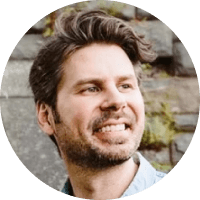
Dave Plisky
Director of Product + InnovationDeSales MediaThis workshop convenes creators, theologians, and ministry leaders to explore how AI can be harnessed to effectively and faithfully amplify the Catholic narrative in today's media-saturated world.
This workshop will feature:
AI in the Creative Arena (Present & Future): We'll begin by surveying the state of AI in creative domains like film, television, music, and interactive media as of late 2025. This includes current AI tools for scriptwriting assistance, visual content generation, music composition, voice synthesis, and automated post-production. We will also explore projected near to mid-term advancements (2026-2027), such as more sophisticated generative video and interactive AI-driven narratives, always considering how these tools can serve the creation of authentic content.
The "Why": AI as a Potent Tool for Faithful Christian Storytelling: This segment will delve into the compelling reasons AI can be a uniquely effective instrument for sharing the Christian story with integrity. We will explore its potential to:
- Democratize production, enabling more voices to create high-quality content that faithfully reflects the Gospel.
- Scale the creation and adaptation of stories for diverse global audiences and languages, while upholding the integrity and core tenets of the Christian message and the Magisterium of the Catholic Church.
- Foster innovative narrative forms that resonate with contemporary culture, especially younger generations, without compromising theological depth or accuracy.
- Enhance the discovery and accessibility of Christian media that is true to the faith.
The "How": Practical Applications of AI in Telling the Christian Story Faithfully: Moving to practical application, we will brainstorm and discuss specific ways AI can be integrated into the workflow of Christian storytelling, emphasizing human oversight to ensure all content produced is theologically sound and pastorally appropriate. This includes:
- Ideation & Development: AI for script analysis, thematic research (e.g., cross-referencing with Magisterial documents), and visual brainstorming that aligns with sacred art traditions.
- Production: AI-assisted animation, virtual set creation, music scoring (potentially drawing from sacred music traditions), and localization that maintains doctrinal precision.
- Post-Production & Distribution: AI for editing assistance, content summarization for catechetical purposes, and personalized content recommendation that guides towards faithful resources.
- Engagement: Developing interactive experiences or educational media rooted in authentic Christian narratives and teachings.
Empowering Faithful Christian Storytellers: Immediate Next Steps: The workshop will culminate in identifying actionable steps to equip and empower Christian creators to use AI responsibly and faithfully. We will collaboratively outline priorities for:
- Training & Literacy: Developing resources and programs to build AI skills among Christian storytellers, with a strong emphasis on discernment, ethical considerations, and maintaining fidelity to Church teaching.
- Tool Development & Access: Identifying or fostering the creation of AI tools that are accessible, affordable, and perhaps even tailored with built-in safeguards or resources that support theological faithfulness and alignment with the Magisterium.
- Platforms & Curation: Exploring avenues for showcasing and distributing AI-assisted Christian media that has been vetted for its faithfulness.
- Community & Collaboration: Building networks of Christian storytellers, theologians, and technologists to collaborate on AI projects that effectively and faithfully proclaim the Christian message.
This interactive workshop is designed for Christian filmmakers, writers, musicians, game developers, media producers, ministry leaders, theologians, and technologists eager to explore and shape the future of faith-based media in a manner consistent with Christian truth. Participants will gain insights into AI's creative potential, contribute to a vision for its ethical and faithful use in sharing the Gospel, and identify collaborative pathways forward.
Charting a Catholic Path for Robotics and Embodied AI
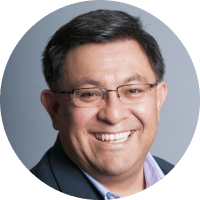
Jose J. Pacheco

Vincent Higgins
CEORuggedEdge AIThis workshop convenes leaders in technology, ethics, and theology to chart a principled path forward, ensuring that powerful robotic technologies are developed and deployed in service of human flourishing.
This workshop will feature:
The State of the Art (as of late 2025): We'll begin with a clear-eyed assessment of where humanoid robotics and embodied AI stand today. We will evaluate how close we are to large-scale, cost-effective manufacturing and widespread deployment, separating current reality from future hype.
Anticipating the Socio-Economic Impact: With a clearer technical picture, we will analyze the foreseeable disruption to the human workforce. This involves exploring which sectors will be most affected and what the likely responses from individuals, communities, and governments will be. This segment aims to foster a proactive, rather than reactive, understanding of the coming societal shifts.
A Catholic Framework for Integration: This central part of our workshop will explore how robots and embodied AI should be integrated into society to advance human flourishing. Drawing from core principles of Catholic Social Teaching—such as the dignity of the human person, the universal destination of goods, solidarity, and the true purpose of work—we will define a framework for ethical development and deployment that prioritizes people over processes.
Envisioning an Ideal Future: Looking beyond the immediate disruption, we will engage in a collaborative visioning exercise. What is the ideal balance of human and robotic labor in a just society? How can embodied AI be used to care for the vulnerable, empower the marginalized, and free humanity for greater creative, relational, and spiritual pursuits? This is about shaping a hopeful, human-centric vision for the future.
Proposing a Path Forward: The workshop will culminate in outlining a concrete, actionable path to realize this vision. This will include identifying specific mission areas—such as dignified elder care, performing hazardous jobs, aiding in disaster relief, and supporting environmental stewardship—where robotics and embodied AI should be proactively applied to accelerate human flourishing. Alongside these recommendations, we will propose specific principles for developers, guidance for policymakers, and strategies for leaders in business and the Church to encourage the development of this technology in a way that truly serves all humanity.
This essential workshop is designed for technologists, ethicists, business leaders, policymakers, theologians, and all who are committed to the responsible stewardship of technology. Participants will gain a comprehensive understanding of the humanoid horizon and contribute to a vital roadmap for ensuring a future where technology serves all of humanity.
Participating Organizations
- Day 1: November 6
- Mass - Tomb of St. Peter7:15 - 8:00
- Fr. Michael Baggot, LC
- Breakfast8:30 - 9:00
- Transit9:00 - 9:15
- Welcoming remarks9:15 - 9:30
- Fr. David Nazar, SJ
- Opening address9:30 - 9:45
- Most Rev. William McGrattan
- Fr. Mark Lewis, SJ
- Msgr. Lucio Adrián Ruiz
- Workshop rundown9:45 - 10:00
- Transit10:00 - 10:15
- Workshop and delegate introductions10:15 - 10:45
- Session 110:45 - 11:30
- Coffee break11:30 - 12:00
- Session 112:00 - 13:00
- Lunch13:00 - 14:15
- Transit14:15 - 14:30
- Session 214:30 - 15:00
- Session 315:00 - 16:00
- Coffee break16:00 - 16:30
- Day 2 - Overview16:30 - 16:45
- Closing remarks16:45 - 17:00
- Free time17:00 - 18:30
- Reception18:30 - 19:00
- Dinner - Palazzo Taverna19:00 - 22:00
- Day 2: November 7
- Mass - Tomb of St. Peter7:15 - 8:00
- Fr. Michael Baggot, LC
- Breakfast8:30 - 9:00
- Transit9:00 - 9:15
- Opening address9:15 - 9:30
- Matthew Harvey Sanders
- Transit9:30 - 9:45
- Session 49:45 - 10:45
- Session 510:45 - 11:45
- Coffee break11:45 - 12:15
- Session 612:15 - 13:15
- Lunch13:15 - 14:15
- Coffee break14:15 - 15:15
- Transit15:15 - 15:30
- Workshop Presentations + Reflections15:30 - 17:15
- Closing remarks17:15 - 17:30
- Reception17:30 - 18:00
- Dinner - Pontifical Gregorian University18:00 - 20:30


